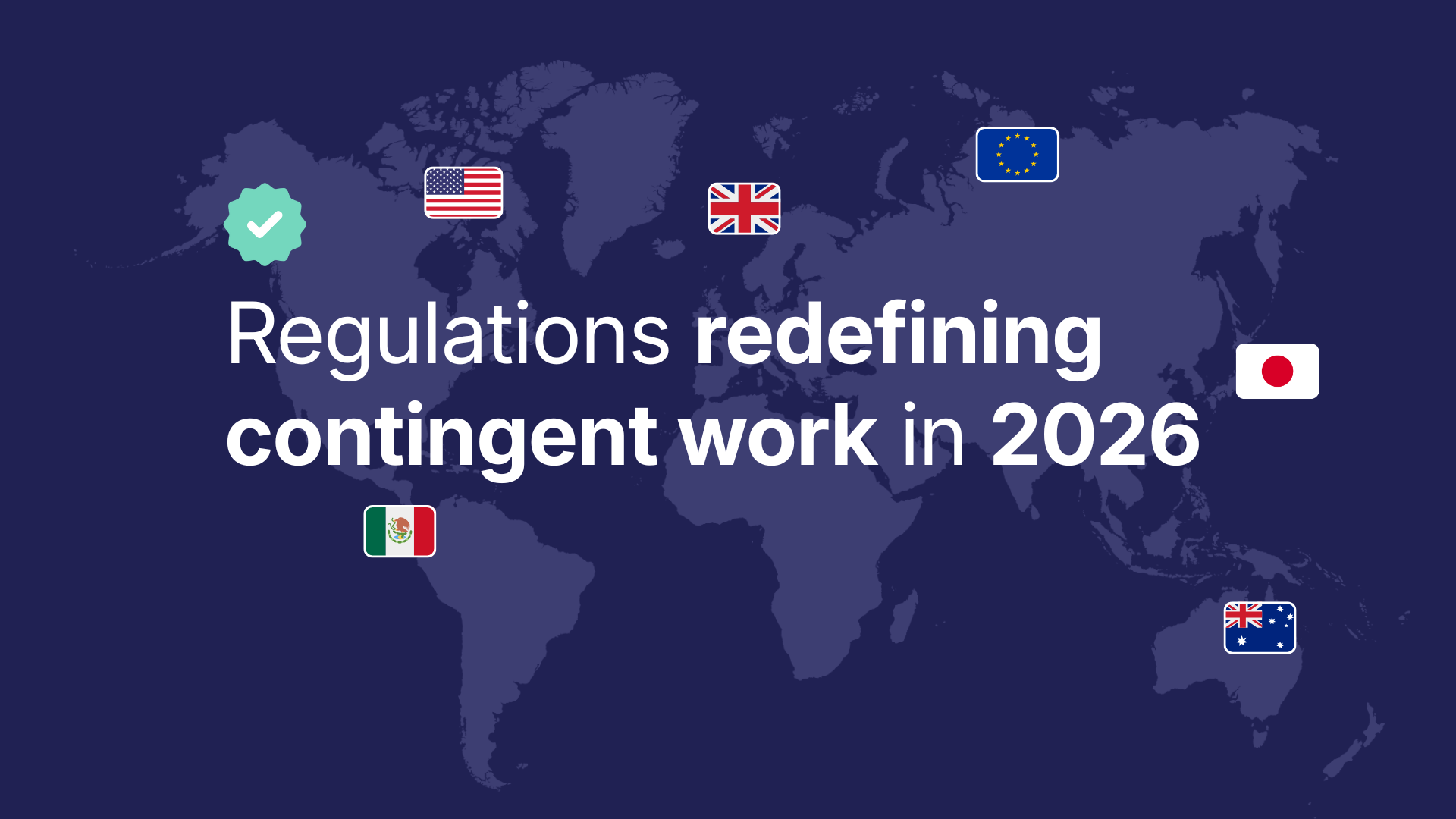Businesses are increasingly turning to global talent to meet their needs. However, managing payroll for contractors across multiple countries can be a complex and time-consuming task. This article explores the concept of global payroll for contractors and how it simplifies payments across more than 150 countries.
Understanding global payroll for contractors
Global payroll for contractors refers to the process of managing and executing payments to independent workers located in different countries. This system ensures that contractors receive their compensation accurately, timely, and in compliance with local regulations, regardless of their geographical location.
The rise of remote work and the gig economy has made global payroll solutions increasingly important. According to a study by Statista, by 2027 it's estimated that in the US there will be 86.5 million freelancers, 50.9% of the total workforce. This highlights the growing need for efficient cross-border payment systems.
Key components of global payroll for contractors
- Currency conversion
- Tax compliance
- Payment methods
- Reporting and documentation
- Legal compliance
The challenges of managing global contractor payments
Managing payments for contractors across multiple countries presents several challenges:
1. Regulatory compliance
Each country has its own set of labour laws, tax regulations, and compliance requirements. Navigating these diverse legal landscapes can be daunting for businesses operating globally.
2. Currency fluctuations
Exchange rates are constantly changing, which can impact the actual amount contractors receive. Managing these fluctuations requires careful planning and real-time currency conversion capabilities.
3. Payment methods
Different countries may have preferred payment methods or limitations on international transactions. Ensuring that contractors can receive payments through their preferred channels is crucial for smooth operations.
4. Tax implications
Understanding and managing tax obligations for both the company and the contractor in various jurisdictions can be complex. Mishandling taxes can lead to legal issues and financial penalties.
5. Data security and privacy
Handling sensitive financial and personal information across borders requires robust security measures to protect against data breaches and comply with privacy regulations like GDPR.
Benefits of implementing a global payroll solution for contractors
Despite the challenges, adopting a comprehensive global payroll solution offers numerous benefits:
1. Streamlined processes
A centralised system for managing contractor payments across multiple countries simplifies administrative tasks and reduces the likelihood of errors.
2. Cost savings
By automating many aspects of the payroll process, businesses can significantly reduce operational costs. Some solutions can help companies achieve up to 80% reduction in sourcing costs.
3. Improved compliance
Global payroll solutions often come with built-in compliance features, ensuring that businesses adhere to local regulations and tax requirements. This can help mitigate legal risks and avoid penalties.
4. Enhanced contractor satisfaction
Timely and accurate payments, regardless of location, lead to higher contractor satisfaction and retention rates. This is crucial in today's competitive talent market.
5. Real-time visibility
Advanced global payroll systems provide real-time reporting and analytics, offering businesses valuable insights into their workforce costs and helping with budgeting and forecasting.
“Single country legislation changes and interpretations can already lead to misclassification errors, so imagine the complexity that companies face to run global contingent workforce programmes where each country will have their own set of local laws and hiring regulations. By classifying contractors through YunoJuno’s platform, businesses can hire faster, compliantly and with peace of mind - on a global scale.”
YunoJuno COO, Joao Martires
Key features to look for in a global payroll solution
When selecting a global payroll solution for contractors, consider the following essential features:
1. Multi-currency support
The ability to process payments in various currencies is crucial for a truly global solution. Look for platforms that offer real-time exchange rates and transparent fee structures.
2. Compliance management
Opt for solutions that provide built-in compliance features, including automated worker classification, right-to-work checks, and tax compliance across multiple jurisdictions.
3. Flexible payment options
The ideal solution should support various payment methods, including bank transfers, digital wallets, and local payment systems, to accommodate contractor preferences worldwide.
4. Reporting and analytics
Comprehensive reporting tools that offer real-time insights into global workforce costs, project timelines, and other key metrics are invaluable for effective management and decision-making.
5. Integration capabilities
Look for solutions that can integrate seamlessly with your existing HR, accounting, and project management systems to ensure smooth data flow and reduce manual data entry.
6. Scalability
Choose a solution that can grow with your business, supporting an increasing number of contractors across more countries as your global operations expand.
.png)
Implementing global payroll for contractors: Best practices
To ensure a successful implementation of a global payroll solution for contractors, consider these best practices:
1. Conduct a thorough needs assessment
Before selecting a solution, evaluate your current processes, pain points, and future requirements to ensure the chosen platform aligns with your business needs.
2. Prioritise data security
Ensure that the solution you choose adheres to strict data security standards and complies with international privacy regulations like GDPR.
3. Provide training and support
Offer comprehensive training to your team and contractors on how to use the new system effectively. Ongoing support is crucial for smooth adoption and operation.
4. Regularly review and update
Stay informed about changes in international regulations and update your processes accordingly. Regularly review your global payroll strategy to ensure it remains effective and compliant.
5. Leverage expert support
Consider partnering with platforms that offer expert support, such as dedicated account managers and in-house compliance specialists, to navigate complex global payroll challenges.
The future of global payroll for contractors
Solutions for managing contractor payments will continue to evolve. Here are some trends shaping the future of global payroll:
1. Increased automation
Artificial intelligence and machine learning will play a bigger role in automating complex payroll processes, reducing errors and improving efficiency.
2. Blockchain technology
Blockchain has the potential to revolutionise global payments by offering secure, transparent, and near-instantaneous transactions across borders.
3. Enhanced compliance tools
As regulations become more complex, we can expect to see more sophisticated compliance tools integrated into global payroll solutions, offering real-time updates and automated adherence to changing laws.
4. Greater emphasis on worker classification
With the rise of the gig economy, accurate worker classification will become increasingly important. Future solutions will likely offer more advanced classification tools to help businesses navigate this complex area.
Conclusion
Global payroll for contractors is a critical component of modern business operations, enabling companies to tap into international talent pools while ensuring compliant and efficient payment processes. By implementing a robust global payroll solution, businesses can streamline their operations, reduce costs, and mitigate risks associated with cross-border payments. By staying informed about the latest trends and best practices in global payroll, businesses can position themselves to thrive in an increasingly interconnected world.
At YunoJuno, we understand the complexities of global payroll for contractors. Our platform offers seamless payment solutions to over 150 countries, ensuring that businesses can manage their global workforce with confidence and ease. With features like set payment terms, built-in compliance checks, and real-time reporting, we're committed to simplifying global payroll processes for businesses of all sizes.







